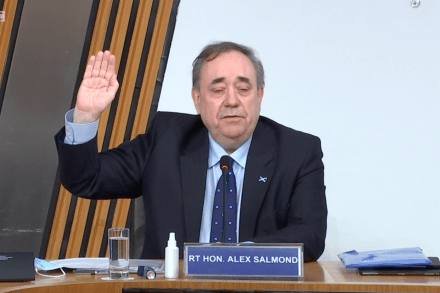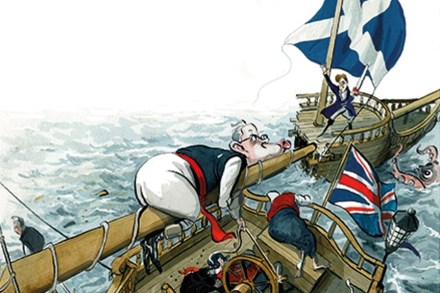The key moments from Salmond’s Holyrood evidence
This afternoon, in the Robert Burns room of the Scottish Parliament, former First Minister Alex Salmond, for so many years the supreme political force north of the border, came out swinging against his successor Nicola Sturgeon and the wider Scottish establishment. In a remarkable evidence session, Salmond attacked the leadership of the Scottish government, suggested that the inquiry into its behaviour had its ‘hands tied behind its back with a blindfold on’, and argued that Nicola Sturgeon had broken the ministerial code. Salmond’s evidence to the Holyrood inquiry – set up to investigate the Scottish government’s handling of complaints made against him – had already been mired in controversy. The





















